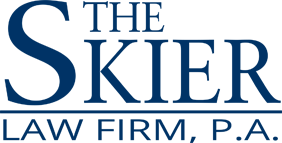The Hobbs Act is a federal law that was passed in 1946 as anti-mafia legislation. While the communists for years had been discussing the potential strategic advantage of infiltrating U.S. labor unions, the mafia managed to get there first. It probably helps when you have corrupt money to spend. Apparently, the communists lacked capital.
Nonetheless, the Hobbs Act remains on the books today and is being used with increasing frequency to prosecute crimes that would typically fall under the purview of state law. These include armed robbery, blackmail, and extortion. Traditionally, however, the law was used to target public corruption and street gangs along with affiliated organized crime. In this article, we’ll discuss the Hobbs Act, how it’s used by federal law enforcement, and why you might need a defense attorney who has experience defending clients from Hobbs Act violations.
What is a Hobbs Act violation?
There are three elements that must be proven to initiate a Hobbs Act prosecution:
- Extortion or robbery by way of threats of force or force; OR
- Extortion or robbery under color of official powers
AND
- The unlawful deprivation of another individual of their property
AND
- The crime must affect interstate commerce in some way
The prosecution does not need to prove that you directly attempted to impede interstate or foreign commerce, only that you did. The connection to interstate commerce can be as tenuous as a store that gets deliveries from out of state. In fact, the prosecution need not even prove that your conduct actually affected interstate commerce, only that your conduct would impact interstate commerce. In other words, nearly any robbery crime that isn’t committed against an individual can be considered a Hobbs Act violation so long as the other two conditions are met.
Penalties for Hobbs Act violations
Hobbs Act violations carry a maximum penalty of 20 years in federal prison plus restitution to the businesses whose interstate commerce was affected by the defendant’s alleged crime.
Defenses to the Hobbs Act
The Hobbs Act can be divided into two subcategories. There are provisions that place restrictions on the types of things a public servant can do, and there are provisions that place restrictions on what a typical citizen can do. It is becoming increasingly more common to find typical citizens charged under the Hobbs Act when the federal government gets involved.
White-collar Hobbs Act violations are committed by those in official power such as Aldermen or appointees when they make self-dealing arrangements using official chits and favors. The other, we can call black-flag crimes committed by robbers or teams of robbers against UPS trucks, storefronts, and other commercial companies.
In either case, the prosecution will have to establish that you either used your position of authority to make threats of violence or extorted favors from others. In most cases, defendants simply say that the prosecution does not have enough evidence to prove the elements of their crime, or that their conduct did not rise to the standard of a Hobbs Act violation.
Talk to a West Palm Beach Hobbs Act Defense Attorney Today
The West Palm Beach criminal attorneys at the Skier Law Firm, P.A. have the experience you need to defend yourself from allegations under the Hobbs Act and other white-collar federal statutes. Call today to schedule an appointment and we can begin preparing your defense immediately.

